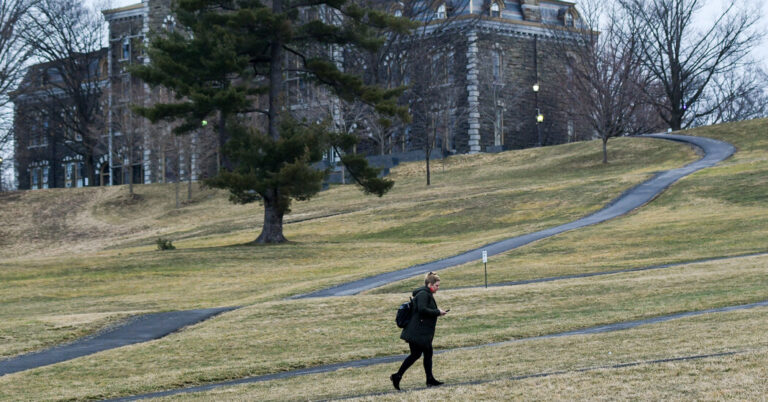Cornell University announced the temporary suspension of all fraternity parties and social events in a statement on Monday, following alerts from the school’s Police Department over the weekend that one student was sexually assaulted and at least four others were drugged at off-campus residences affiliated with fraternities registered with the school.
The move came after the Interfraternity Council, which oversees fraternities at Cornell, held an emergency meeting with staff on Sunday, according to the statement.
The Cornell police said they were made aware on Nov. 4 of at least four students who said they drank little or no alcohol at off-campus parties in recent weeks but became incapacitated. The students told the officers they had been “exposed to Rohypnol,” the so-called date-rape drug.
And on Sunday at around 4:45 a.m., another student reported that they had been sexually assaulted at another residence in the city, the police said. Cornell did not identify the gender of any of the victims.
“Police and Cornell administrative investigations are underway,” said the statement, signed by the university’s president, Martha E. Pollack, and the vice president of student and campus life, Ryan Lombardi. “All found responsible will be held accountable.”
The Ithaca Police Department said in a statement that it was investigating the sexual assault allegation. Both the Cornell Police Department and the Interfraternity Council did not respond to questions about the alerts.
Like many universities across the country, Cornell — whose main campus is in Ithaca, N.Y. — has grappled with cases of sexual assault. According to State Department of Education data from 2018, the university reported more cases of sexual assault during the first five months of that year than any other institution of higher learning in New York. In 2020, the school had the fourth-highest number of sexual assault reports in the state.
In a 2021 survey of 2,300 students at all of the university’s campuses across the state, 44 percent of the respondents said they had experienced “one or more specific forms of harassing behaviors” — a drop from 50 percent in a 2019 survey.
A former fraternity president at the school was sentenced to six years of probation in 2017 after pleading guilty to a misdemeanor sex offense charge. The fraternity president, Wolfgang Ballinger, who led the school’s Psi Upsilon chapter, was accused of locking a woman in his bedroom in 2016 and attempting to have forcible sexual intercourse with her.
